You also can contact my cardiologist at the address, phone number and URLs listed below:
2550 Fifth Avenue, Suite 706
San Diego, California 92103
(619) 544-0200
www.heartprotect.com
When to have invasive procedures and when not — what your doctor may not tell you.
The past 20 years has seen a proliferation of bypass surgery and angioplasty, in spite of strong scientific evidence that neither may be helpful in the long run for the overwhelming majority of patients. In general, the only reason for the one million such procedures each year is the high number of working cardiologists and cardiovascular surgeons in the medical community and the extremely high profitability of these procedures, around $70,000 for a bypass and $30,000 for an angioplasty.
The landmark CASS Study (stands for Coronary Artery Surgery Study) in 1984 demonstrated the irrelevance of bypass surgery and angioplasty to survival after the diagnosis of coronary artery disease is made. Analysis of outcome in 780 patients demonstrated no statistical difference in survivability between patients who both went to surgery and were treated medically and patients who were treated medically without surgery. Neverhteless, this extremely well documented study is generally ignored by doctors who do these procedures and never mentioned to patients who they consider candidates for bypass or angioplasty.
"Blockages," as reported from angiography are not an accurate reflection of blood flow according to a 1984 study published in the New England Journal of Medicine. No correlation between blockage and blood flow means the angiogram is worthless for gauging degree of blockage. (2)
If "blockages" are visible on angiogram, this does not mean bypass surgery or angioplasty should be done, since blood flow does not correlate with these images. What this study can tell you is if you have some plaque formation. However, the important item is blood flow. What does correlate with blood flow is the "ejection fraction," that percentage of the blood the left ventricle can eject from its volume at full expansion. For example, if the heart can empty ½ the volume it contains before contraction, the ejection fraction is said to be 50%.
If a cardiologist recommends angiogram (catheterization), the chances are it is not needed by the standards of the AMA. Ask your doctor to determine the ejection fraction and if it is 40% or better, decline the angiogram because your pump is healthy enough that whatever the results of angiogram, no surgery is advisable according to AMA guidelines. Why place yourself at the risk of death (1-2% for angiogram and 5% for bypass) if your pump is working?
According to the AMA the indications for bypass surgery are:
In these cases surgically treated patients do better than non-surgically treated. (3)
In summary, the salient points to consider when confronted with a heart doctor who wants to operate are:
Sources:
Dr. Wayne's newest book Do You Really Need Bypass Surgery will be available by the end of the summer or early Fall. The price of the book has not yet been determined. Some of the subject material is listed below.
You will learn from Do You Really Need Bypass Surgery:
You will learn:
Learn:
This book can not only save your life but the lives of your family, friends and loved ones.
There is a new product that shows much promise in the quest to prove CABG is not the best treatment for CAD.
Of the major interventions performed for treating severe coronary heart disease in the United States, namely percutaneous coronary intervention (PCI or angioplasty) and coronary artery bypass graft (CABG) surgeries, more than one million procedures are performed annually and more than two-thirds of these are performed on men. While angioplasty and stenting or CABG surgeries can be used to mechanically open or surgically bypass blockages of the large epicardial blood vessels that surround the myocardium, neither angioplasty nor CABG are believed to be capable of also addressing blockages or flow limitations affecting the mid-sized to smaller blood vessels which are located deeper within the heart muscle. These deeper blood vessels, which form the underlying coronary "microcirculation," are directly responsible for conveying oxygenated blood into close proximity with the adjacent heart tissue. In addition, microcirculatory impedance or resistance to flow at the downstream level can contribute substantially to reducing overall blood flow through the myocardium - which may be a contributory cause of ischemia in patients with heart disease. In that regard, many patients continue to experience angina even after surgical and other interventions have been performed to mechanically open or bypass accessible portions of the large upstream blood vessels that initially conduct blood flow into the heart.
Cardiovascular disease is also becoming the number one health problem globally. According to the World Health Organization, by 2020 heart disease and stroke will be the leading causes of death and disability worldwide, with the number of fatalities projected to increase to more than 20 million per year. Additional information regarding heart disease in both men and women can be found in the publications of the American Heart Association, including Heart Disease and Stroke Statistics, and in the reports of the World Health Organization and its affiliates.
About Generx
Generx (alferminogene tadenovec) is the lead development product in a new class of cardiovascular biologics that is being developed to leverage the body's natural healing processes in response to repeated ischemic stress (insufficient blood flow and myocardial oxygen supply due to severe coronary artery disease). The natural biologic response to repeated transient ischemia is angiogenesis, the growth of new collateral blood vessels, which is orchestrated by a complex and incompletely understood cascade involving many myocardial-derived growth factors. These newly-formed vessels can effectively augment blood flow and oxygen delivery to parts of the patient's heart downstream from a blockage in a coronary artery. In many patients however, including those with recurrent angina, coronary collateral vessel formation is insufficient to meet the heart's needs during stress. Currently available anti-anginal drugs, which may provide temporary symptomatic relief, are generally designed to alter the oxygen demand of the heart muscle or dilate vessels to relieve angina without changing the underlying medical condition.
For more information, check out http://www.pharmalive.com/News/index.cfm?articleid=346686&categoryid=40
Another lawsuit has been filed by the family of a patient who died after heart surgery at Mary Washington Hospital.
The suit alleges that Ralph P. Holt died because he received contaminated medicine during bypass surgery last year.
The suit was filed last week in Spotsylvania County Circuit Court and brings to eight the number of suits brought by heart patients and their survivors who believe that bacteria-laden solution caused their injuries and deaths.
The Holt case is similar to a case filed in March by the family of another man who died after heart surgery. It also resembles six other cases filed Monday in Spotsylvania court.
All involve former bypass patients at Mary Washington Hospital. The cases name as defendants Central Admixture Pharmacy Services, or CAPS, the maker of the suspect medicine; B. Braun Medical, its parent company; and MediCorp Health System, parent company of the hospital.
Holt's death was one of three cases that brought about a temporary halt to heart-bypass cases at Mary Washington. Hospital officials suspended heart surgeries in September, blaming a cardioplegia solution purchased from CAPS for a cluster of poor outcomes.
Efforts to reach CAPS representatives for comment yesterday were unsuccessful. In one court document, they blame Mary Washington for the patients' problems, saying the solution was "further prepared" at the hospital.
Hospital officials deny this, saying bacteria were discovered by independent labs in unopened bags of the cardioplegia.
After Mary Washington complained about the solution, the U.S. Food and Drug Administration did inspections and ordered the temporary closure of CAPS' Lanham, Md., plant because of bacterial contamination.
The Holts' court filing also offers a glimpse at the personal side of these cases, how a relatively healthy person can enter the hospital for surgery, only to have it take an unexpected turn.
"Obviously, he was in the hospital for surgery, but he was expecting to have a long and happy life," said Charles A. Gavin, the Richmond attorney representing the Holt family.
Holt was a 75-year-old resident of Fredericksburg, the father of one son and one daughter. He and his wife, the former Dona Grise, were within weeks of celebrating their 54th wedding anniversary.
The Holts met while attending the University of Central Arkansas in Little Rock. After graduation, he entered the Marines and served tours of duty in Okinawa, Korea and Vietnam.
After his retirement in 1981, the couple settled in the Fredericksburg area and purchased The Flower Shop in Fredericksburg. They ran the business together, with Ralph Holt doing much of the book work and deliveries, and Dona Holt specializing in floral arrangements. They sold the business in 2001.
Afterward, the couple enjoyed traveling, something they had done frequently while he was a Marine.
"Ten days prior to his surgery, they were in Colorado," Gavin said.
They also enjoyed golf, playing together three or four times a week. A dream for both was to attend the Masters golf tournament in Augusta, Ga. Each year they tried unsuccessfully to purchase tickets. They were able to get tickets for the 2006 tournament.
Friends describe Holt as a vigorous man who exercised regularly and appeared younger than his years. His widow's lawsuit describes him as "in general good health, fully independent, active and loved by his family."
But he experienced a "spell" at church one day and went for a cardiac catheterization at Mary Washington on Aug. 16. The test revealed a blockage, and his physician recommended coronary artery bypass graft surgery.
Dr. John M. Armitage performed the surgery on Aug. 31.
During the surgery Armitage used a cardioplegia solution manufactured by CAPS in Lanham where the suspect material was made.
Cardioplegia is a mixture of chemical compounds routinely used during open-heart surgery to still the beating heart. It comes in a three-bag set and is administered intravenously throughout the surgery.
Holt never recovered from the bypass surgery. His blood pressure plummeted, and he bled internally. Eventually his kidneys failed. The constellation of symptoms is called systemic inflammatory response syndrome.
Armitage decided to reopen Holt's chest two days later, but his condition worsened throughout the day.
"They couldn't figure out what was going on," Gavin said.
Holt died that evening, Sept. 2.
Friends joined the family for the funeral at Fredericksburg United Methodist Church. Holt was buried at Quantico National Cemetery.
Dona Holt didn't attend the Masters tournament in April, Gavin said, and she has not played golf since her husband's death.
Have you been told you need a coronary artery bypass graft. My site tells why you need to get a second opinion. Please read it carefully, it may save your life or the life of someone you love.
The trouble was, its very first TV commercial with Dr. Jarvik was downright deceptive. It suggested that he was rowing a racing shell across a mountain lake when he was not, in fact, rowing. A stunt double was at the oars. And while the commercials have Dr. Jarvik enthusing over Lipitor “as a doctor and a dad,” he is actually an inventor and researcher. He has a medical degree, but did not go through residency training and is not licensed to practice medicine or prescribe drugs.
The commercials also fail to note that Dr. Jarvik only started taking Lipitor about a month after he started touting its virtues under a contract that would pay him a minimum of $1.35 million over two years.
Rather than fight with the House Energy and Commerce Committee, Pfizer folded its tent and ended the ad campaign. The committee plans to continue its investigations of the Lipitor marketing campaign and of possible deception in other drug advertising aimed at consumers. We encourage the committee to delve deeply.
Have you been told you need a coronary artery bypass graft. My site tells why you need to get a second opinion. Please read it carefully, it may save your life or the life of someone you love.
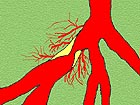
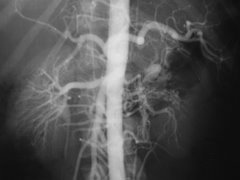
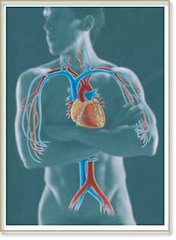
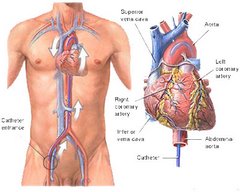
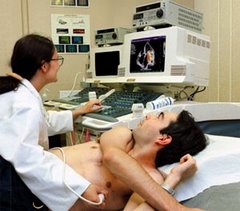
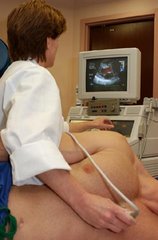
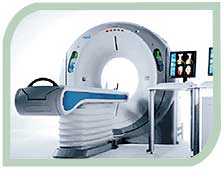
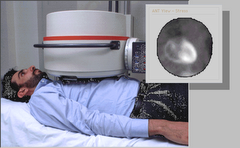
Materials copyrighted or otherwise claimed as intellectual property by contributing authors, artists and columnists are accepted as the sole property of said authors, artists and columnists. WordWorks2001 and its owner accept no liability for the content, use or reproduction of such materials. Permission to reproduce information from this site must be obtained from WordWorks2001 Editorial Staff or, where applicable, from the contributing authors, artists and columnists. Permission will be voided unless all copyrights and credits are displayed with the information reproduced.